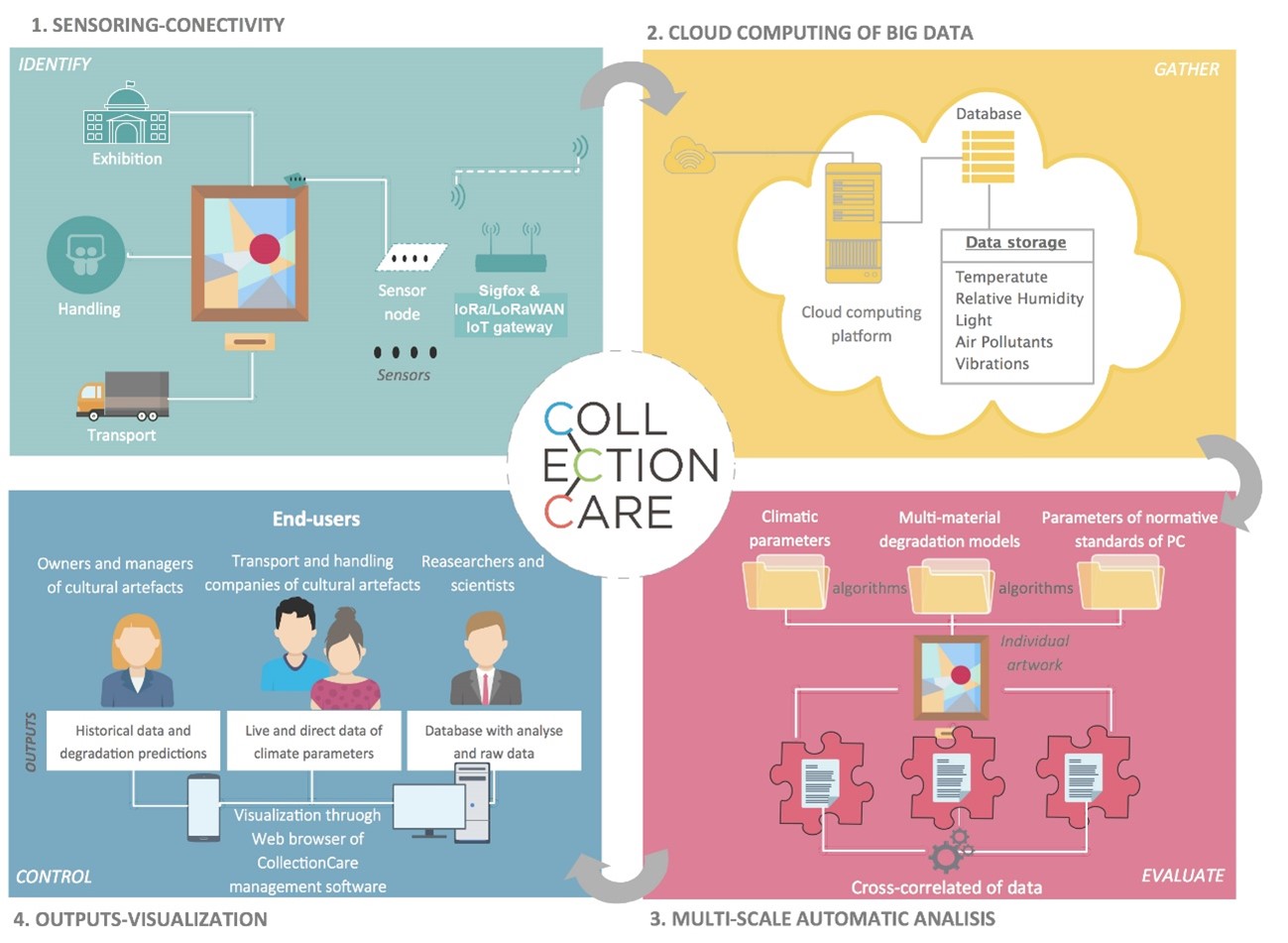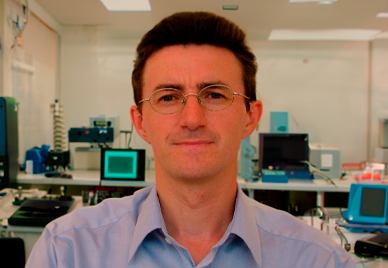In recent years there has been growing interest in the development of devices and software packages that allow museum decision-makers to manage the environmental conditions in collections and estimate the evolution of degradation of objects. A system able to monitor the environmental conditions but also to provide warnings and recommendations about failure boundaries would optimize conservation actions and strategies thus ensuring proper conservation of the collections in the long term.

CollectionCare project aims to develop an innovative and affordable decision support system for the preventive conservation of cultural objects in small and medium-sized museums by combining research and technological advances in monitoring systems (sensor nodes), wireless communications, cloud computing, big data, and material degradation models.
Validation and demonstration activities for the CollectionCare system will be carried out in six different European museums. To this end, communication efforts will be developed to promote the importance and applicability of these technologies in the conservation of cultural objects. All this in order to increase citizens’ awareness of the importance of preventive approaches for the conservation of the European cultural heritage.
For further information please click here: https://www.collectioncare.eu/
|
This project has received funding from the European Union’s Horizon 2020 research and innovation programme under grant agreement No 814624. |
 |



